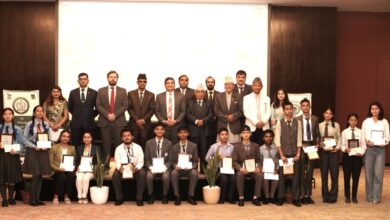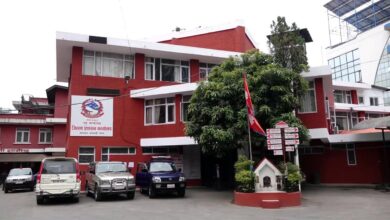Nepal’s Media: Foreign Grants and the Sensitivity of Democracy

# By Muna Chand
Independent journalism is considered a crucial pillar of democracy in Nepal. However, in recent years, concerns have been growing about the potential influence of foreign funding on Nepal’s media landscape.
Available data shows that between 2016 and 2019, various Nepali media organizations received millions of dollars in grants from foreign sources. Some key examples include:
Centre for Investigative Journalism (CIJ) received $105,000 from the Open Society Foundation in 2016.
Shikshak Magazine received $95,350 in 2017.
Media Academy Nepal received $40,000 in 2017.
Antenna Foundation Nepal (AFN) received $67,951 in 2018.
Chandani Nepal received $19,626 in 2017 and $30,737 in 2018.
Center for Media Research-Nepal received $23,396 in 2017 and $59,890 in 2018.
Centre for Investigative Journalism (Nepal) received another $79,500 in 2019.
Sancharika Samuha received $48,000 in 2019.
Tana Bana Private Limited received $125,000 in 2019.
Boju Bajai received $57,500 in 2019.
Himal Southasian received $130,000 in 2019.
Ujyaalo Multimedia Pvt. Ltd. received $279,000 in 2017, $260,000 in 2018, and $50,630 in 2019.
Foreign Influence and Questions on Independent Journalism
Such grants may be necessary for the growth of journalism, investigative reporting, and media sustainability. However, do these financial supports come with hidden agendas that could compromise Nepal’s independent media?
From China’s perspective, some of these international donors are linked to “terrorist activities,” while Russia views them as associated with “war criminals.” If Nepali media outlets receive funding from such sources, are they truly committed to impartial journalism, or are they being influenced by foreign agendas? This is a serious question that needs in-depth discussion.
Protecting Democracy: Independent Journalism or Foreign Influence?
Nepal’s democracy is based on neutrality, transparency, and national sovereignty. If foreign entities are strategically investing in Nepali media to exert influence, it could have long-term effects on Nepal’s political stability, social harmony, and policy independence.
The government of Nepal, media stakeholders, and citizens must carefully study the implications of such foreign funding. Policies should be designed to ensure transparency while safeguarding the core principles of journalism.
Receiving foreign grants is not inherently wrong, but if not used wisely, they could lead to external interference in the media sector. To protect Nepal’s democratic system, it is crucial to establish policies that promote independent journalism in a way that prioritizes national interests. Ensuring unbiased, transparent, and citizen-focused journalism is the need of the hour.







